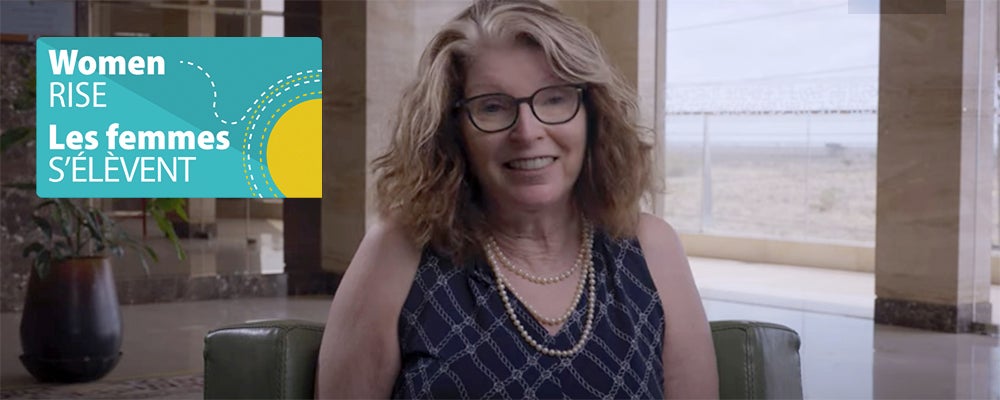
Water Institute member Dr. Susan Elliott, Professor and University Research Chair in Medical Geography talks about the Women Rise Together Across the Life Course (Write-life) project.
Around the world, women and girls have disproportionately suffered from the socio-economic impacts of COVID-19. Women have borne the brunt of layoffs and loss of livelihoods, sacrificed their own health at the frontlines of the pandemic response and disproportionately shouldered the burden of the additional caregiving associated with COVID-19.
Women's health and economic empowerment for a COVID-19 Recovery that is Inclusive, Sustainable and Equitable (Women RISE) is a Canadian initiative that was launched in March 2022 by the Canadian Institutes of Health Research (CIHR), in partnership with the International Development Research Centre (IDRC), and the Social Sciences and Humanities Research Council (SSHRC), to address impacts of the pandemic.
In November of 2022, the recipients of the Women RISE research initiative were announced and 23 successful teams shared $24 million to support their research. Among the projects funded was Women Rise Together Across the Life Course (Write-life), with Water Institute member Dr. Susan Elliott, Professor and University Research Chair in Medical Geography, as the Co-PI and Diana Karanja, Community Health Support Programme (COHESU), as project lead. The project received $1 million in funding.
Using a parallel case study design in two sites, Kisumu, Kenya, and Mukono, Uganda, that employs an innovative methodology that privileges the voices of women from all socio-economic backgrounds, COHESU and the University of Waterloo are exploring how women’s health and work have been impacted by the pandemic.
The study has origins that trace back to
a 2020 Water Institute Seed Grant that supported
Dr. Elliott’s research on water security and
gender‐based violence in sub-Saharan Africa.
This new research will discern women’s needs to address their health and well-being issues and to feel more empowered. The knowledge gained will inform policy and practice to empower women and address the socio-economic and health inequalities sharpened by the COVID-19 pandemic.
“By empowering women even through the provision of
safe water and adequate sanitation they are actually building up their families and their communities, so it has really strong co-benefits beyond just them as women,” said Dr. Elliott.
Additional objectives of the project include;
- Increasing participation of women in economic activities and education in Kenya and Uganda through improved policies and practices that benefit women of all ages, particularly in the education, health and employment sectors.
- Increasing access, for women in Kenya and Uganda, to reliable pensions and geriatric health care services.
- Improving South-South collaboration and strengthened capacities for postdoctoral fellows and graduate students.
Learn more about Dr. Elliott’s project in a new video spotlight from the African Population and Health Research Center (APHRC):